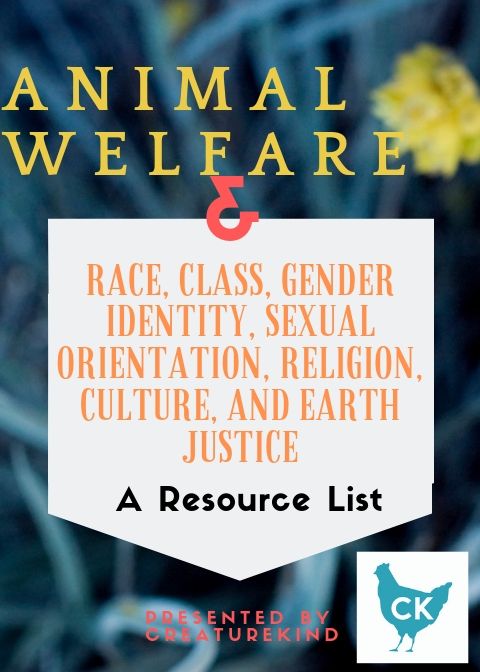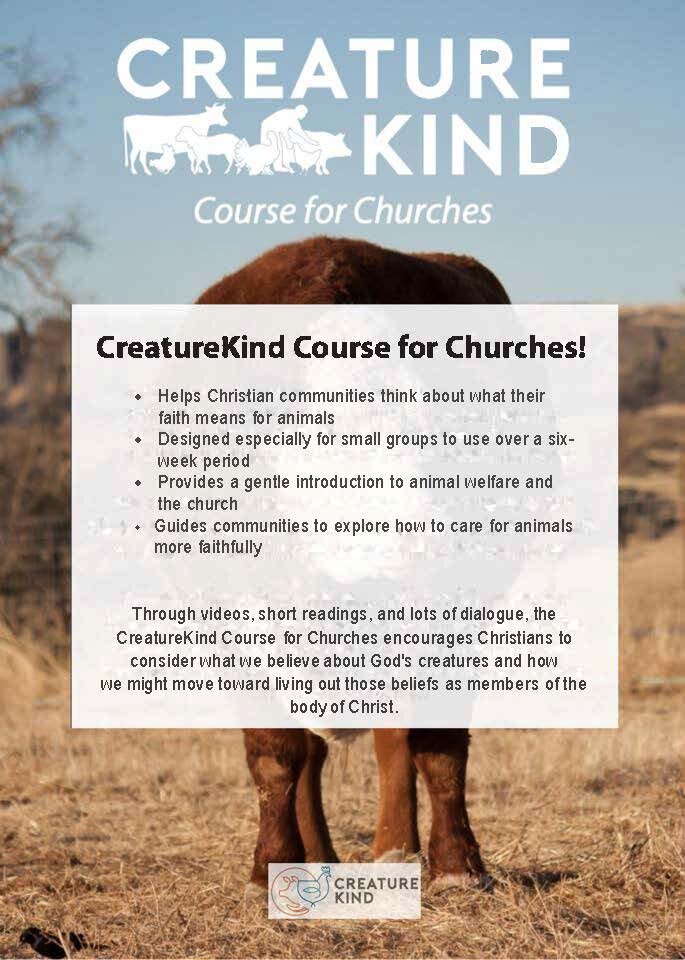by Aline Silva
Are you interested in how the welfare of farmed animals relates to race, class, gender identity, sexual orientation, religion, and culture? CreatureKind has compiled a resource list to help explore these intersections. Note: updated June 2020.
You might also be interested in the following resources (all available on our Talks & Publications page):
Food Ethics in Practice Presentation. This presentation was prepared by Rev. Dr. Christopher Carter for a workshop and identifies some of the major justice issues in our current food production system.
Our handout that details some of the connections between climate change and animal agriculture.
Infographic: Faith Based Reasons for Caring about Animals and Ways to Make a Difference. Helps connect Christian values of compassion and justice to food and farming, and includes easy steps for your community to take to take action.
Climate Change, Economic Justice, and Farmed Animal Welfare: A Resource for Ecumenical Advocacy Days, 2020. Does your church community care about climate change and/or economic justice? Here are some ways to take action together.
Would you like to add to our list or have an additional resource to suggest? Drop us a line!




